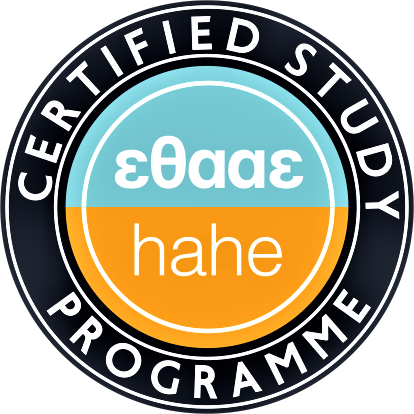Y5. Digital Methods Application in the Humanities
Instructor: Agiatis Mpenardou (coordinator)
Mandatory, Teaching Period B, ECTS: 6,
Course Contents:
Historical and theoretical review of the Digital Humanities. Theoretical and hands-on approach to digital methods for research and creative purposes. Digital Infrastructures. User requirements. Annotation. Digital Storytelling. Information Management. Workflows.
Prerequisites
None.
Target Learning Outcomes
- Basic familiarization with theoretical approaches to the Digital Humanities
- Understanding and training on a wide spectrum of digital methods
- Team work / interdisciplinarity
Recommended Bibliography
- Antonijević, S. (2015). Workflows of digital scholars. In S. Antonijević, Amongst digital humanists: an ethnographic study of digital knowledge production (pp. 37–72). New York: Palgrave Macmillan US. https://doi.org/10.1057/9781137484185_3
- Benardou, A., Champion, E. M., Dallas, C., & Hughes, L. M. (2018). Introduction: a critique of digital practices and research infrastructures. In A. Benardou, E. M. Champion, C. Dallas, & L. M. Hughes (Eds.), Cultural heritage infrastructures in digital humanities. Abingdon, Oxon ; New York: Routledge. Retrieved from https://www.academia.edu/34807867/Introduction_a_critique_of_digital_practices_and_research_infrastructures
Teaching and Learning Activities
One three-hour lecture per week, study exercises and programming exercises as homework (to be submitted).
Assessment and Grading Methods
The final grade is the average of the study exercises and programming exercises as homework grades (80%) and student participation in class (20%).



